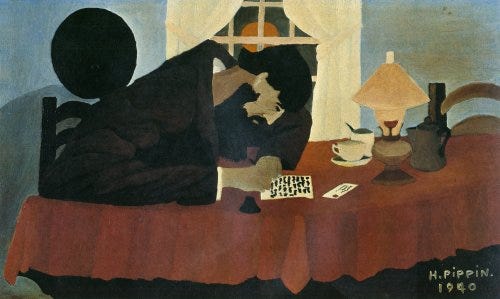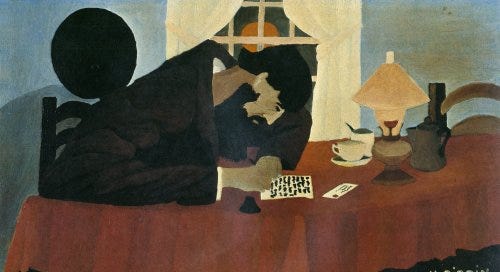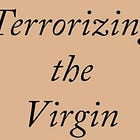Nobody Knows What Autofiction Is (I Don’t Know What Autofiction Is)
Another Hard Day at the Substack Factory
Recently, I interviewed a poet whose book I like very much. Over the course of the interview, I asked him a question about “autofiction.”
I’m trying to remember why I asked the question:
Z: [Terrorizing the] Virgin is obviously a book of poetry—but it also seems somewhat autofictional. What do you think of autofiction?
In that moment, I was half-way hoping that we would end up liking similar novelists and that this would free me up to ask some more questions about fiction and writing, and that kind of thing, with more ease and familiarity.
But even as I asked the question, as I used the word “autofiction,” I have to admit that I had almost nothing in mind.

To me, “autofiction” was always a condensation of two different descriptors: automatic fiction and autobiographical fiction. I imagine the former as a method wherein the writer writes at high speeds to avoid what people call the “internal editor,” producing voluminous prose works that make it impossible, or at least more difficult, for the writer to hide from themselves and from their reader. What I privately think of as automatic fiction represents a half-heroic, half-desperate attempt at raw honesty and directness. The writer I think of here is Knausgaard and his six-volume novel My Struggle. But this novel, however automatically it was written (and Knausgaard’s interviews on the subject and what he says about the writing process in the book itself bears out my uncritical use of “automatic”), it is obviously also an autobiographical novel.
My notional groping goes something like this: automatic fiction will often result in autobiographical fiction, but autobiographical fiction need not be written in an “automatic” way (as described above). Autofiction is just a useful condensation of the two things, which often overlap.
So, when I asked this poet about autofiction, it was a good question because I had no idea what he was going to say and I had no real idea what I myself meant. And he did have a great response.1
I just looked up autofiction on Wikipedia. The definition? It’s fictionalized autobiography. Nothing about automatic writing, which is, I am now remembering, more of an occult practice.
Now, I’m combing through the list of writers who are considered to write or have written autofiction. I like a lot of them. Others, I could not care less about. There are a handful who I consider the greatest writers to have ever lived. The wider base of the pyramid is made of writers I could never, ever be bothered to read. I cannot imagine ever becoming that interested in Philip Roth. Or Ben Lerner.
Oh, there’s
, my Substack co-worker! I’ve still never read any of his books, though I saved his essay on the paranormal, which I mean to read.Well, this hasn’t been a very edifying piece.
My point, if I have one, is about the use of words like autofiction. They don’t have to have clear or meaningful definitions, only flexible uses. They are like discursive lubricants that you can use when you don’t really know what you’re talking about but want to talk about it anyway. I do it all the time.
Regarding the genre, however, we could maybe say that this very piece qualifies as autofiction, especially if I begin to reminisce about the great time I had interviewing Billy Pedlow at Veselka in the East Village over borscht and coffee, or how I say good morning to
and every morning when I clock-in at the Substack factory. Are those parts autobiographical or fictional and in what measure?Here’s one concrete takeaway, something that I’ve learned in the last 15 minutes or so spent looking up stuff about autofiction, even though I’m not sure if everyone’s talking about the same thing: people fucking hate it, but it’s also what Marcel Proust and James Baldwin were doing.
B: I think autofiction is a somewhat depressing cultural moment. A good contrast is reality TV. I love reality TV, and it’s not exactly honest, yes? They try to have fun. It’s really Reality+. I think the best autofiction pieces are autofiction+. I want to see more of that.
There was only one time I ever K-holed. I don’t do Ketamine much, it’s a horrible drug that makes me want to break up with people. Every time I do that drug, I end a relationship. But the one time I really K-holed, I was in a playground in Ridgewood, and I was surrounded by this steel town, like a tiny child-sized recreation of a suburban village. There was a fire department, a school, a pharmacy, a police department, and a town square. It really freaked me out that in this place where children are supposed to play, that they were just imagining themselves as adults. I guess I think of autofiction as depressing in exactly that way. I am sort of horrified by it. But I really like reality TV.
The entire interview can be read here:






When you start writing it’s all fiction